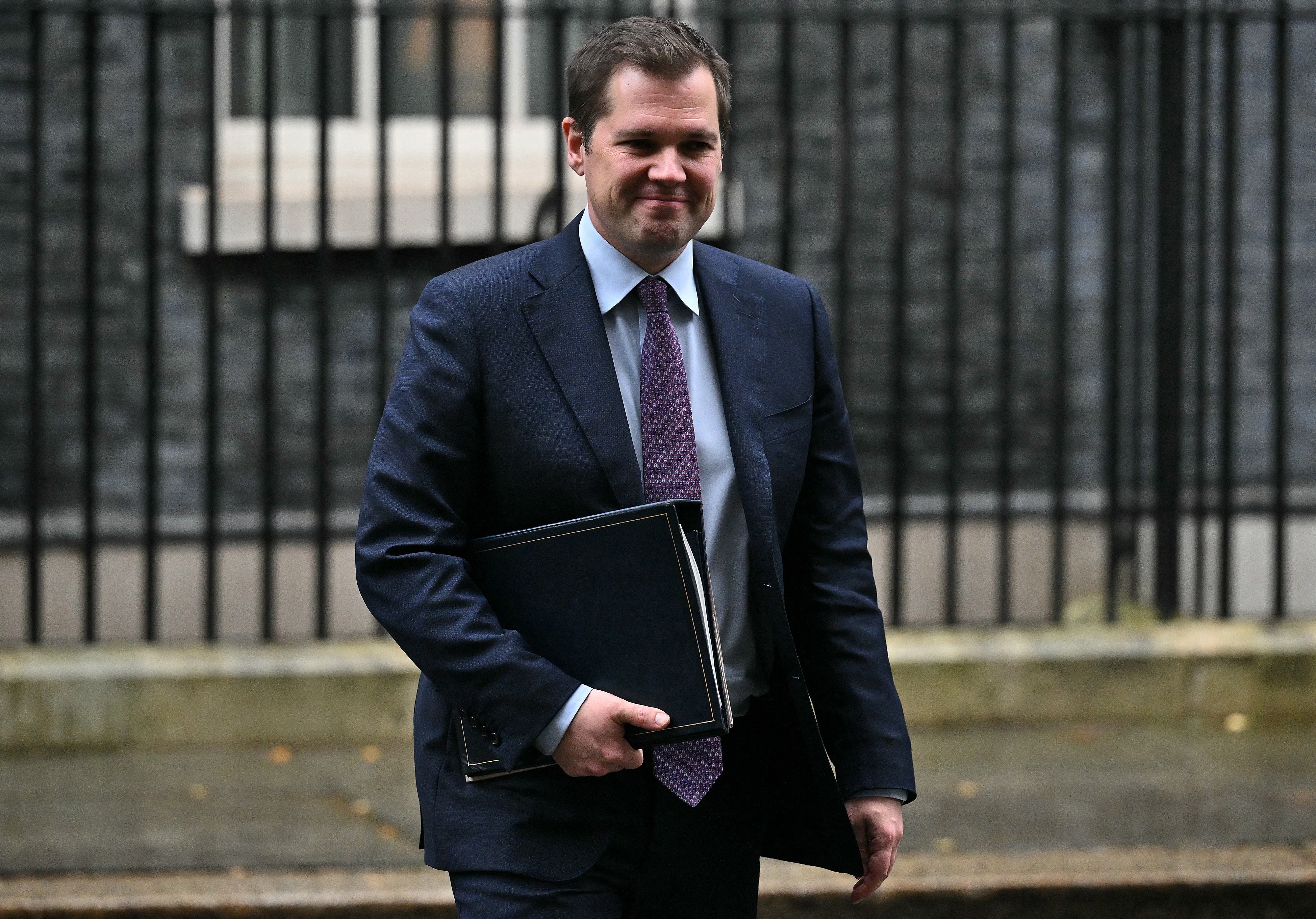Robert Jenrick’s resignation shows the game is up for Rishi
He was one of Rishi Sunak’s closest allies, one of the three amigos – but Jenrick quitting over the prime minister’s policy to cut immigration shows a collapse of party discipline, writes John Rentoul


Once upon a time, a mere four years ago, Robert Jenrick was a rising star on the inside track. He and two other middle-ranking ministers, Rishi Sunak and Oliver Dowden, were the first from the loyalist heart of the party to come out in favour of Boris Johnson when Theresa May’s government collapsed.
The three of them wrote a joint article for The Times headlined “Only Boris Johnson can save us”. All three went on to be cabinet ministers in Johnson’s government and, when that collapsed, Sunak became prime minister and, after a short pause, Dowden became deputy prime minister. Jenrick on the other hand had lost his place in Johnson’s cabinet over a problem with a planning application for flats at Westferry next to Canary Wharf, and as a result had become semi-detached from the other two of the three amigos.
He was stuck as a minister of state, attending cabinet but not a full member, and apparently charged with being Sunak’s spy in Suella Braverman’s cab at the Home Office. He may have resented being seen as the prime minister’s creature in the Home Office, especially when he would not have been human if he did not think he could do Braverman’s job better than she did.
But he didn’t win promotion when she was finally sacked last month, despite having positioned himself as the competent exponent of roughly the same anti-immigration approach as hers. Westminster had been abuzz with speculation for some time about his apparent “radicalisation”, adopting more and more of Braverman’s positions – albeit without the most inflammatory language and without writing articles for newspapers without getting them cleared by the prime minister’s office.
I doubt if Jenrick sees himself as a possible leadership contender, as he always seemed to have a realistic assessment of his appeal across the party – in contrast to Braverman who seems to have an ambitious estimate of her electability. To be sure, she is at the head of the core anti-immigration wing of the parliamentary party, but it is nothing like big enough to ensure that she would be in the final two candidates whose names would go to the party members for the final run-off.
And if she cannot win, then he certainly cannot, because he would have to overtake her.
So we can only assume that Jenrick has resigned because he has had enough, and because he doesn’t expect the government to recover over the next year. It is worth taking some at least of his resignation letter at face value and assuming that, when he describes the Rwanda bill as “a triumph of hope over experience”, he means it.
When he says he is “unable” to take the bill through parliament because “I do not believe it provides us with the best possible chance of success”, he probably means that too. He is certainly in a good position to have observed the floundering of the Home Office and No 10 since Sunak became prime minister a year ago – and to know what is likely to work, given that nothing has worked so far.
There may well be an element of truth in the “radicalisation” theory, in that it is possible to see how a centrist technocrat might come to the view that only the most drastic measures are likely to succeed. Some “One Nation” Tory MPs who previously regarded Jenrick as one of them say that they cannot understand how he is prepared to tear up international law that they had assumed was sacrosanct. But they haven’t had to struggle with the mechanics of delivering a workable policy to “stop the boats”, which is what Sunak has promised to do. It seems from Jenrick’s resignation letter that he is convinced that the deterrence effect of the Rwanda policy is the only solution, and that it cannot be diluted by “highly contested interpretations of international law”.
Equally, however, he must know how hard it would be to get a bill setting aside international law through parliament. It wouldn’t even get through the parliamentary Conservative Party because, as Jenrick knows, there are 106 MPs in the One Nation Caucus who won’t stand for it. And it certainly wouldn’t get through the House of Lords.
So it would seem that he has just given up. Sunak’s bill won’t work, and the kind of bill Jenrick wants isn’t possible. So he is off. It may be that there is not much more to it than that. Maybe he sees a career for himself in a future Tory government. He is only 41 after all, the youngest of the three amigos. It can do him no harm to cut a figure for himself as a principled anti-immigration voice.
But that does mean he has written off the current government and the coming election. It means that discipline is breaking down. The Tory party has been divided for some time, but when former friends fall out in such bitterness, the government is approaching the end game.
Join our commenting forum
Join thought-provoking conversations, follow other Independent readers and see their replies
Comments
Bookmark popover
Removed from bookmarks